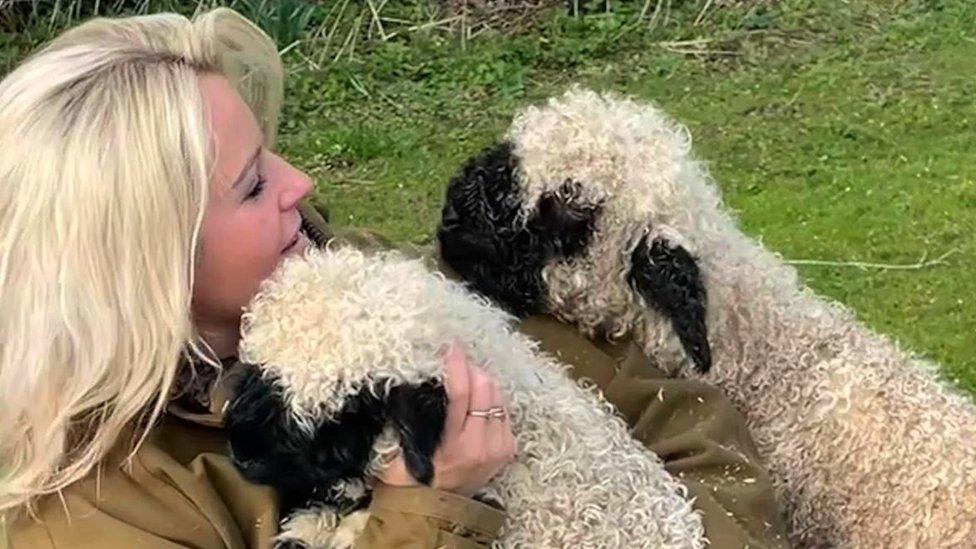Rare sheep breed brings joy to farmer couple
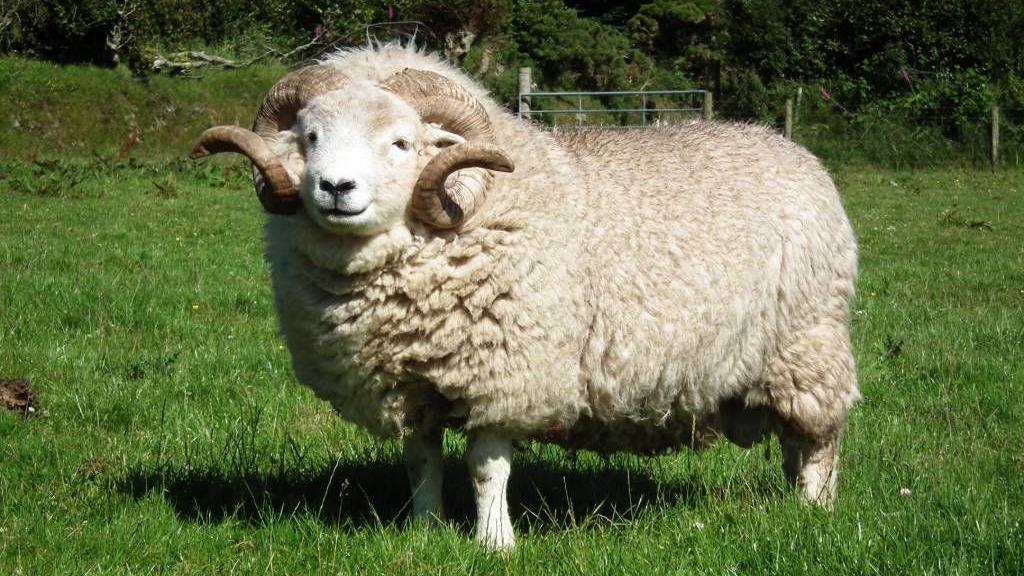
The Exmoor Horns help to maintain moorland
- Published
A rare sheep breed is bringing joy to a Somerset couple who have been rearing them for 13 years.
Ben and Tamsin Blackmore, from Dulverton, have a flock of about 70 Exmoor Horn Sheep.
The sheep have been native to the Exmoor area since Roman times but have recently been declining in numbers, Exmoor National Park said.
Describing the breed to BBC Radio Somerset, Mrs Blackmore said: "I just love their smiley faces and the slightly difficult characteristics of them."
Exmoor Horn Sheep are adapted to the Exmoor area, which can see a lot of rain and winter weather.
David Butt, member of the Exmoor Horn Sheep Breeder's Society, added the breed was also an important part of the local ecosystem.
He said: "They're important for maintaining moorland.
"There are other breeds of hill sheep but these are special to the area."
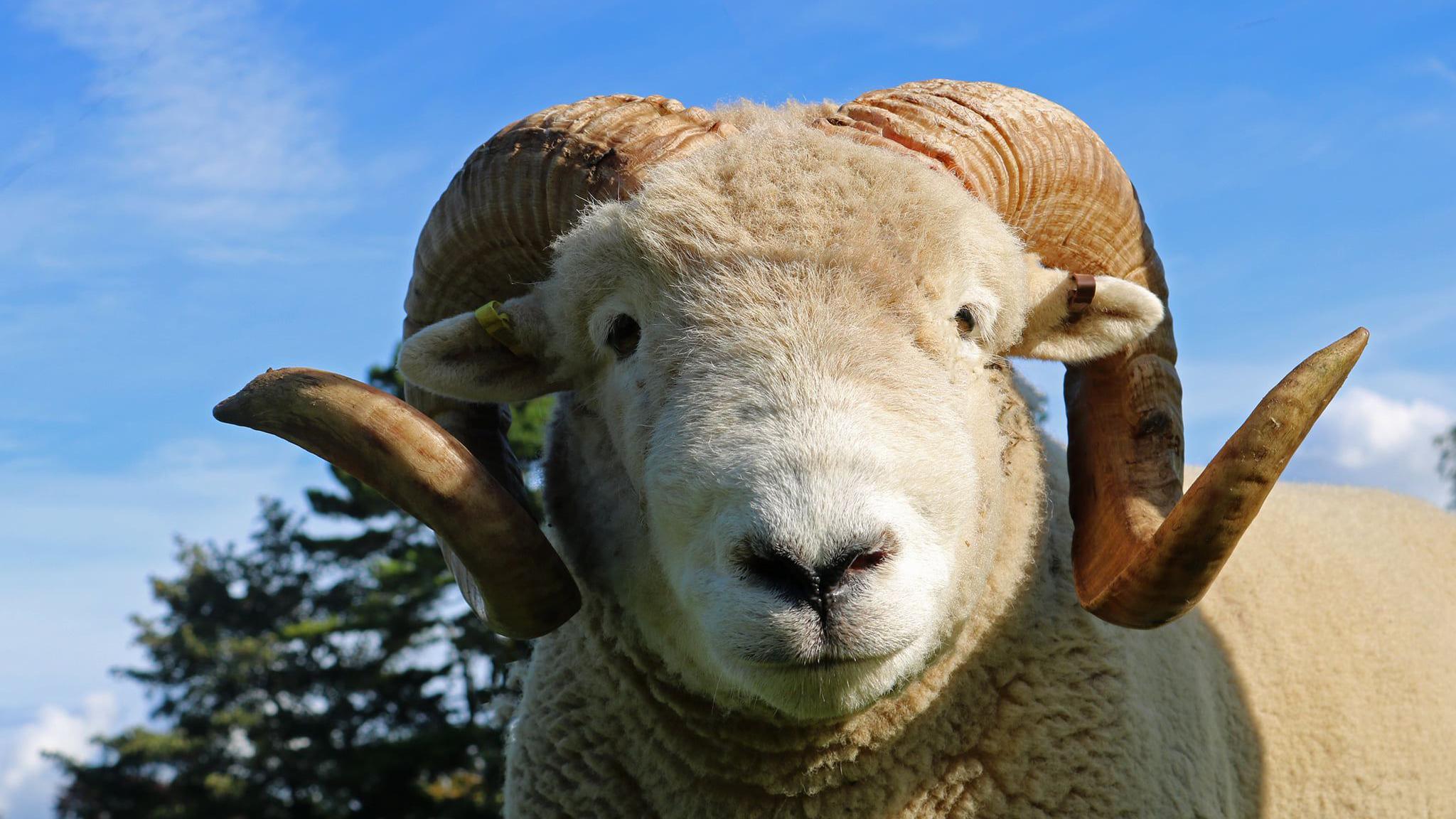
Both female and male Exmoor Horn Sheep have horns - earning them their name
Exmoor Horn Sheep Facts
According to Exmoor National Park, remains of similar sheep were found near Roman encampments on the North Devon coast.
The breed has become adapted to its environment over the generations and its ability to graze Exmoor is important for maintaining the open moorland and indigenous heathers.
The breed is classed as "at risk" - mainly because most of the sheep are only found within the moorlands of Devon and West Somerset.
Usually both males and females are horned, earning them their name.
They are tough, hardy sheep, able to withstand high rainfall with minimal foot trouble, according to the Exmoor Horn Sheep Breeder's Society.
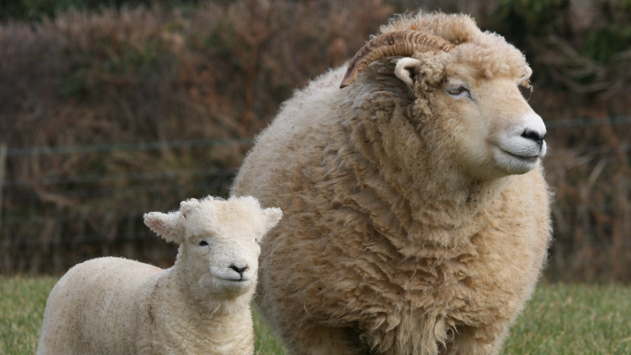
Mrs Blackmore said she loved the breed's "smiley faces"
Mr Butt regularly takes his sheep to shows across the country to promote the breed.
The Blackmores do the same and recently showed them at the Royal Bath and West Show.
Mr Blackmore said: "What we get out of them is a couple of holidays a year.
"You go to the shows and you stay there for three days and have a really good socialising time with other competitors.
"It's just a lovely breed to be involved in."
'Smiley faces'
Mrs Blackmore said it was "always thrilling" to do well in the local shows.
"It's the breed's home show, you just feel so lucky to do well there," she said.
She added the sheep bring a lot of joy to them both.
"I just like to look after them. They're easy to look after because they're a hill breed, they're self sufficient," she said.
Follow BBC Somerset on Facebook, external and X, external. Send your story ideas to us on email or via WhatsApp on 0800 313 4630.
Related topics
- Published11 March 2024
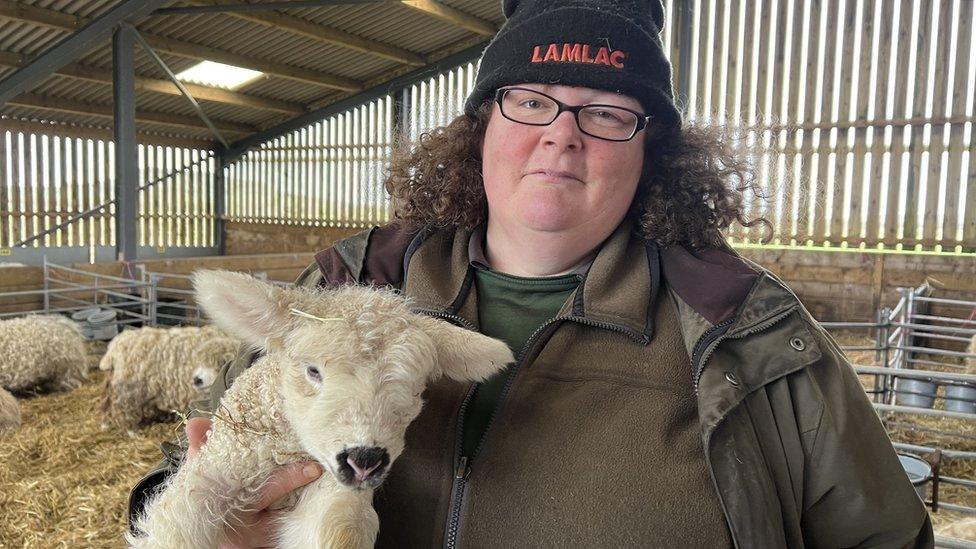
- Published10 April 2023
